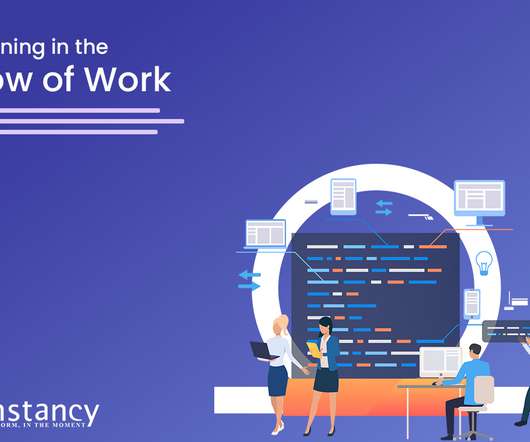Improving Informal Learning
Big Dog, Little Dog
APRIL 20, 2009
Two recent posts got my attention -- Tony Karrer's Reduce Searching Start Talking and Harold Jarche's Effective knowledge sharing. Harold notes the 80-20 funding ratio between formal and informal learning and Will Thalheimer questions this funding differential in the comment section. So which chart do we believe?


































Let's personalize your content